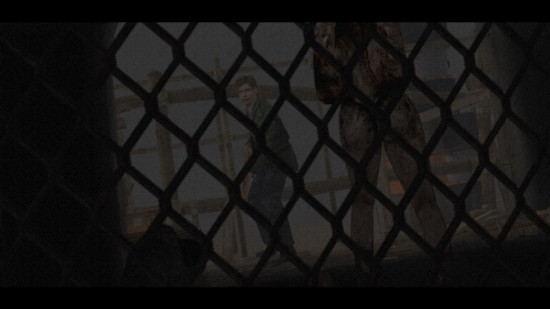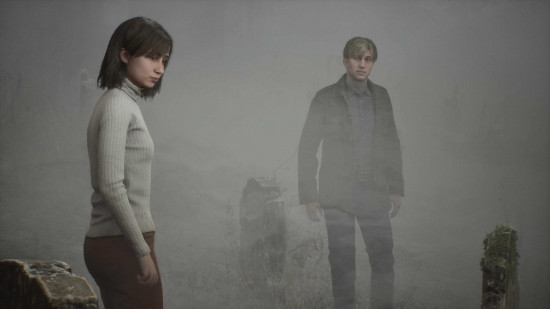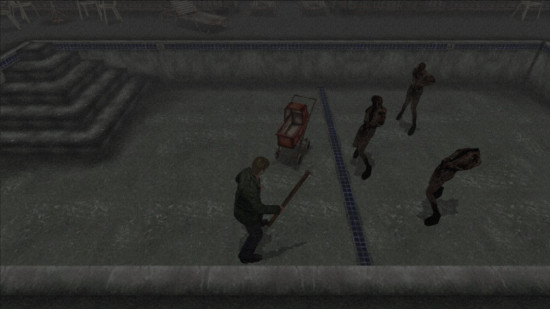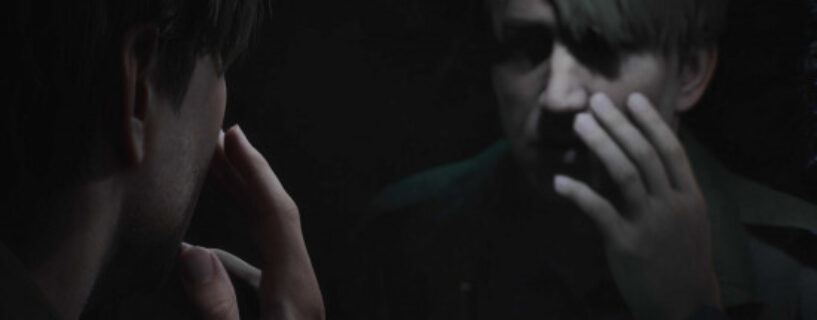There’s no denying that Bloober’s accomplished and expansive Silent Hill 2 remake exceeded expectations, though I still prefer the 2001 classic’s terror-inducing, mind-warping creativity. Silent Hill 2 remake is technically a more proficient videogame than Team Silent’s original. It looks better, plays better, meets the expectations of the day, and builds out the town of Silent Hill in ambitious ways. Yet the original’s technical limitations and the artistry holding it together due to and in spite of those possible pitfalls help to make it special.
Truthfully, Silent Hill 2 is a better game because it’s a ‘worse’ game.
First, let’s focus on the obvious. It’s no secret that Silent Hill 2 was filled with fog to ease the rendering load. But the setting’s most iconic feature isn’t the only hardware limitation that leaves you unsettled. The jerky movement of characters in a scene – from the deliberately jarring monsters to figures meant to move in a more familiar way – is so unlike fluid human movement that they create a base level of uncanniness.
The facial expressions of the core cast weren’t motion-captured (and even if they had been, the technology certainly wasn’t up to today’s standard). This means that 2001’s James and Maria feel off compared with their 2024 counterparts. The Uncanny Valley is alive and present in Silent Hill.
The voice acting is equally uncanny. Silent Hill 2’s original voices are often criticized for their stilted awkwardness, but they’re an essential part of the game’s atmosphere. The lack of realism in the delivery creates a nightmarish quality in the style of David Lynch. An illogical script that’s filled with lines no human would reasonably say contributes here, too.

In 2024, everyone looks and behaves like a real person. This realism diminishes the dream-like atmosphere, and it also leaves less room for nuance. Take Angela, for example. In the original, you learn about her traumatic past through ambiguous lines of dialogue and the character design of her own personal monster, Abstract Daddy. In the remake, she explains her plight outright.
James, too, feels less open to interpretation. His dialogue was far more minimal in the original game, and its delivery rarely conveyed the kind of emotion you’d expect. This made it more difficult to understand his ‘true’ motives and personality. Like a brain struggling to interpret shapes in the darkness, you’re left to create your own idea of the person James really is. And this means that Silent Hill 2’s multiple endings all feel valid, as James is equal parts hero and villain, depending on how you see him.
The remake gives out more information to judge the characters on, meaning I no longer have the freedom to interpret them differently. I spend more time in James’ inner world, and a more straightforward, spelled-out portrayal leads me to more logical conclusions. I find I sympathize with him less, and one ending feels more definitively ‘true’ than the others for me. With the remake, it’s like admiring a painting in a gallery, but there’s a large plaque telling you exactly what it’s supposed to mean.
Beyond the characters, the scenery is less defined in the original game, meaning that your mind struggles to interpret what it’s seeing – even in well-lit areas. When a brain doesn’t get perfect information from the eyes, it creates something to fill in the gaps. That’s why you’ll start to see horrendous faces if you stare at a mirror in the dark – and why the lack of detail in the town of Silent Hill adds to its dread.

In contrast, the remade Silent Hill is more ‘knowable’ than it’s ever been. You still can’t see three feet in front of your face, but once you’re up close, you can examine every building and patch of street in incredible detail. You can smash windows to obtain items and pass through doors that were once impenetrable walls.
When I played the remake, I believed that I spent far longer exploring Silent Hill in the original PS2 game. I’ve since returned to said original, and on a repeat play, I’ve discovered this was untrue. I simply got lost more often. The remake does a far better job of telegraphing where to go next and how to solve a problem. However, that ‘lost’ feeling is as much a part of Silent Hill 2’s atmosphere as the graphics and acting. Without it, exploration feels much safer.
Speaking of safety, you’ll feel far more in control of the situation in Silent Hill 2 remake. This is partially thanks to the shift from fixed camera angles to an over-the-shoulder third-person perspective. The original takes away some of your agency, leaving you feeling vulnerable. It’s far more frightening to turn a dark corner when you can’t see what’s ahead of you – and you can’t decide when your view will shift. The constant fog and darkness, combined with these unforgiving camera angles, keep Silent Hill feeling claustrophobic.
2024’s Silent Hill 2 also feels far more combat-focused than its 2001 counterpart. You’ll face off against dozens – likely hundreds – of enemies in the remake, and you have much, much smoother controls with which to smack or shoot them. Again, this makes you feel more in control of the situation. Enemies become overly familiar after repeated exposure, and combating them turns into a mundane task rather than a genuine moment of terror. 2024’s James is a monster in melee, able to rack up hundreds of kills, while his original self felt much more squishy and unsafe.

So much of this game is communicated through imagery and metaphor, so let’s speak about it metaphorically for a moment. Silent Hill 2 should be more like poetry than fiction. Consider, for a moment, the traditional Japanese haiku.
These must be composed of a five-syllable line, followed by a seven-syllable line, followed by another five-syllable line. The original poetic form also limited the imagery and intent, placing further limitations on how you could create art within these margins.
While such rigid rules may sound like they make the act of creation harder, the opposite is true. You must become more creative to surpass these obstacles, and the final result is satisfying and beautiful in a way that free-form writing struggles to achieve.
The Silent Hill 2 remake is totally unrestricted by the talent and technology available to its creators. However, it’s less creative – and impressive – for its lack of limitations. The original is a more flawed telling of the same story, but it’s also far more meaningful for it.

